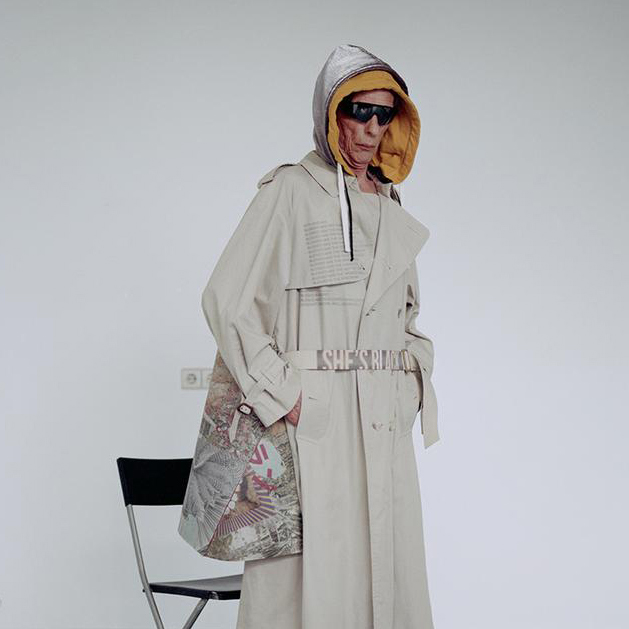 Duran Lantink
Duran Lantink
‘Coping with people is difficult for me sometimes’, says Duran Lantink. ‘People can be so transparent, they say things to please you, or a work situation has a strong hierarchy, so you aren’t allowed to say and do certain things. But we are free, we are all people and we are all equal. I am no more important than anyone else. My father passed on this colour to me, but he died shortly after I was born. I simply do not understand the white-is-normal standard, I like to ignore it or by-pass it. I grew up with my white Dutch mother and her family, and when someone asks me ‘What are your roots?’, I give them a strange look.
‘Don’t ask me who I am and don’t expect me to remain the same’ is the title of this series (a citation from Michel Foucault). Foucault concluded that we people have become mainly work-machines and he places The creative unexpected self versus The functioned disciplined self. Next, he proposes a flexible self because, according to him, ‘self’ is not a fixed entity. A Syrian who comes to the Netherlands does not remain the same man as he was in his country of origin. An adolescent who leaves his parental home changes.
Duran Lantink uses fashion as a tool to engage on-lookers, to realise dis-identification. To promote the autonomy of individuals.
‘For me, fashion makes everything possible, that you can look exactly how you want to look. That makes you bigger. Strong and powerful, like when I used to go to school wearing a Puck and Hans dress of my mother’s. And believe me, I didn’t get bullied. I was a loud-mouth.’ Dis-identification, that’s the type of independence involved.
These photos of Lantink’s embody a thought about our reality: for instance, it is not about the ego, which is concealed behind all those big fashion brands. That’s not in tune with the reality of the world, or, to put it in fashion jargon, there isn’t a single look any more. No-one should lock themselves away because of the expectations of others, Lantink’s fashion is a statement in defence of freedom, the uniqueness of every single person.


